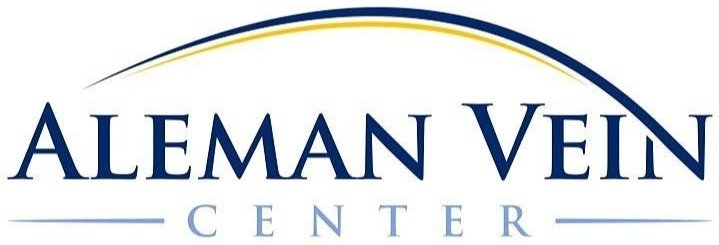Does Insurance Cover Varicose Vein Treatment?
This is a common question that we are asked here at Aleman Vein Center. Obviously, this is an important consideration for most people seeking treatment for their varicose veins and venous insufficiency.
Whether insurance covers varicose vein treatments depends on several factors, including the type of insurance plan you have, the severity of your condition, and the specific treatment you require for your situation.
Here are some key points to consider:
1. Medical Necessity: Insurance companies typically cover varicose vein treatments when they are deemed medically necessary. This means that if your varicose veins are causing symptoms or complications, such as pain, swelling, skin changes, ulcers, or bleeding, your insurance is more likely to cover the treatment.
2. Treatment Options: The type of treatment you're seeking can also affect coverage. Common treatments for varicose veins include conservative measures like compression stockings, minimally invasive procedures like radiofrequency ablation (RFA), Varithena, or ultrasound-guided sclerotherapy. Some insurance plans may cover certain treatments but not others, so it's essential that you go to a vein center that has a lot of knowledge and experience with sorting through these issues. If your vein specialist is not aware of the different policies and their restrictions, they could recommend an uncovered treatment option. This could cause a delay in your care or outright denial of necessary treatment.
3. Preauthorization: Many insurance plans require preauthorization before they will cover varicose vein treatments. Because we have a tremendous amount of experience navigating the insurance company policies and preauthorization processes, we are able to follow your insurance company's guidelines and obtain any necessary approvals before proceeding with treatment.
4. Out-of-Network Providers: If you choose a healthcare provider or facility that is out-of-network for your insurance plan, your coverage may be limited, and you may have higher out-of-pocket costs. Aleman Vein Center is in network with most major insurance companies, Medicare, and Medicare Advantage plans. If you call us, we can check to make certain that we are in network with your insurance.
5. Deductibles and Co-pays: Even if your insurance covers varicose vein treatments, you may still be responsible for deductibles, co-pays, and co-insurance, depending on your plan. These costs can vary significantly, so it's essential to understand your financial obligations. As part of the initial consultation here at Aleman Vein Center, our insurance specialists will verify your insurance benefits and review any expected out of pocket costs with you prior to scheduling any treatments. We know that insurance is inherently confusing, so we invest a lot of time to educate patients on their insurance, and we are very transparent about any anticipated out-of-pocket costs.
6. Documentation: Your vein specialists may need to provide detailed medical documentation to support the medical necessity of varicose vein treatment when seeking insurance coverage. Again, this is where experience and focus are critical. Insurance companies and Medicare routinely update and change their policies regarding coverage for varicose veins and venous insufficiency. Since the only condition that we treat is varicose vein disease, we are able to stay up to date with the current policies, coverage, and exhaustive documentation requirements.
To determine whether your insurance will cover varicose vein treatments, it's best to come in for a consultation. We will be able to contact your insurance company to inquire about coverage, specific treatments they approve, any preauthorization requirements, and the estimated costs you might be responsible for. We have years of experience navigating this process and can help to get the answers you need.

